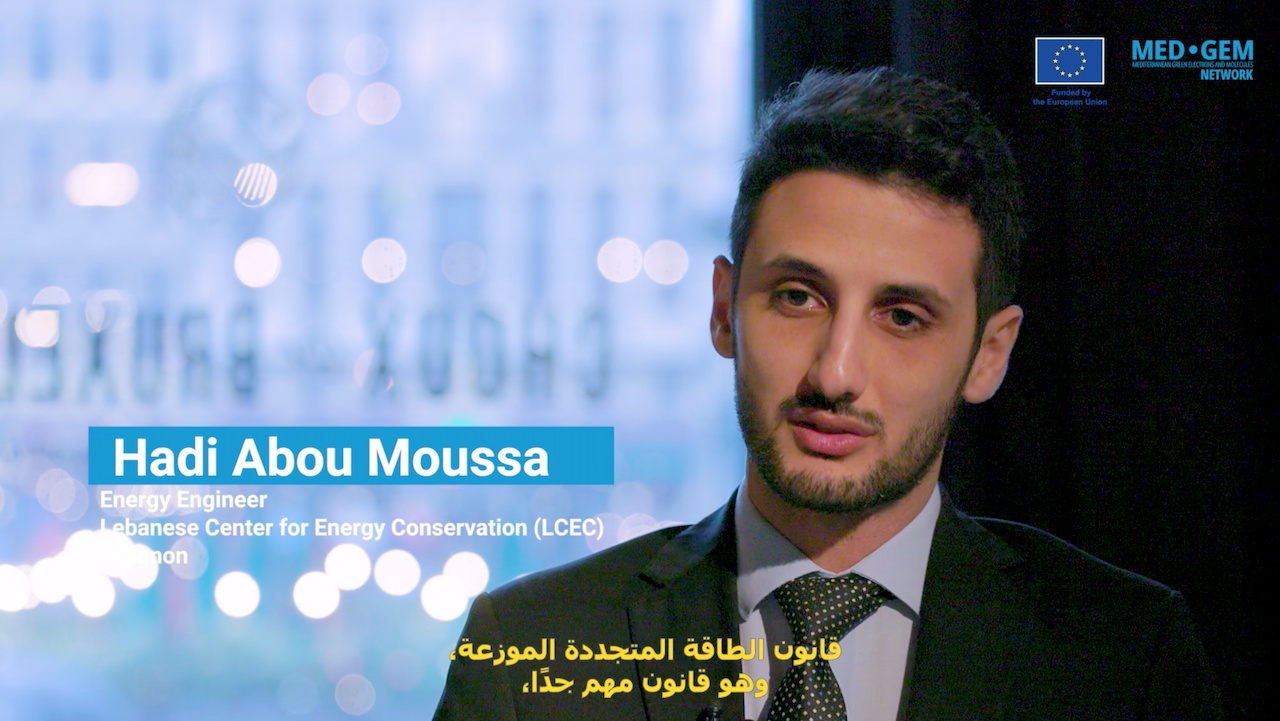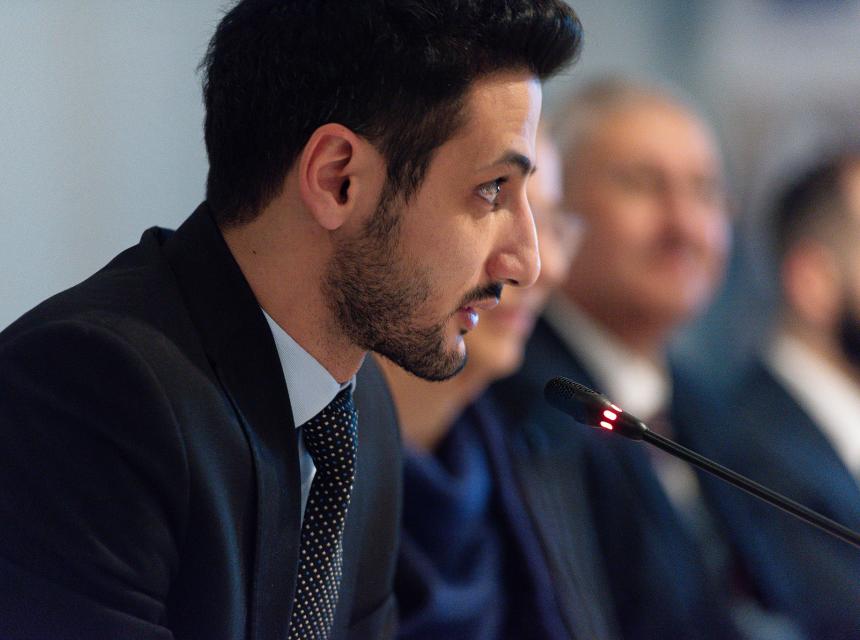Lebanon's Distributed Renewable Energy Law: Interview with Hadi Abou Moussa
In an exclusive interview with MED-GEM Network during the inaugural Industry Advisory Board in Brussels last December 20th 2023, Hadi Abou Moussa, Senior Energy Engineer at the Lebanese Centre for Energy Conservation (LCEC), sheds light on groundbreaking developments in Lebanon's energy sector. Representing Mr. Pierre El Khoury, the LCEC General Director and Lebanon’s National Focal Point to MED-GEM Network, Abou Moussa articulates key initiatives and milestones that are poised to reshape the country's energy landscape.

🎬 Watch the video with Arabic Subtiles
Ratification of a News Distributed Renewable Energy Law
The Lebanese Parliament recently ratified the distributed renewable energy law, a significant development that allows the private sector to trade and sell electricity generated from renewable sources, up to ten megawatts. This is seen as a crucial step toward achieving national targets for renewable energy production in Lebanon.
Eng. Abou Moussa emphasizes that the new law is important for addressing the current electricity situation in Lebanon. It opens the door for cleaner and cheaper sources of electricity, providing more supply hours to end-users at lower prices.
Integrating Renewable Energy Systems
The conversation delves into the potential of seamlessly integrating renewable energy systems into the Lebanese grid. Eng. Abou Moussa outlines plans to explore smart metering and electric mobility programs, maximizing the benefits of decentralized renewable energy projects.
Largest-Scale Solar Farms Project
A major highlight is the ongoing development of 11 solar farms in Lebanon, each boasting a capacity of 15 megawatts. This groundbreaking initiative marks the first large-scale deployment of renewable energy projects in the country, facilitated by power purchase agreements between the public and private sectors.
Unlocking Hydrogen Potential
He reveals the ripple effect of renewable energy projects – a vast potential for green hydrogen production in Lebanon. The MED-GEM project, he shares, is actively contributing to the formulation of a hydrogen strategy, complete with a preliminary study assessing production potential and demand.
Navigating Challenges in Hydrogen Strategy Development
Acknowledging the complexity of developing a hydrogen strategy, Eng. Abou Moussa discusses challenges such as the necessity for a flexible regulatory framework, heightened awareness, and capacity-building programs for both public and private sectors. Additionally, he highlights the need to address challenges related to land access and water supplies.

